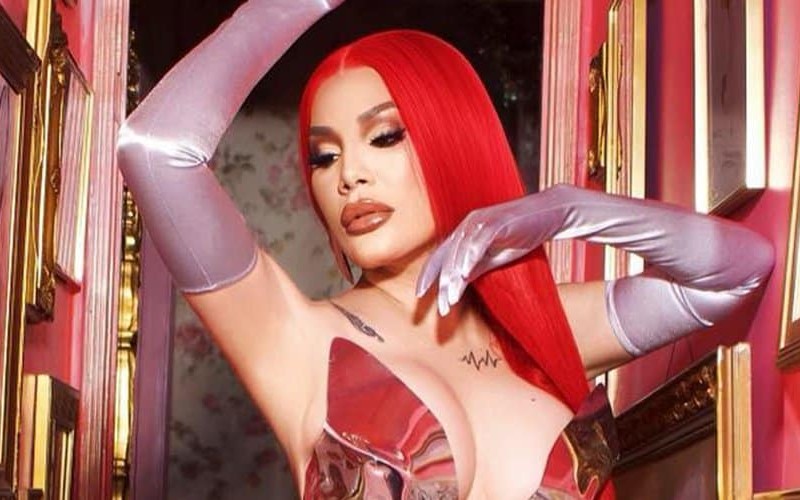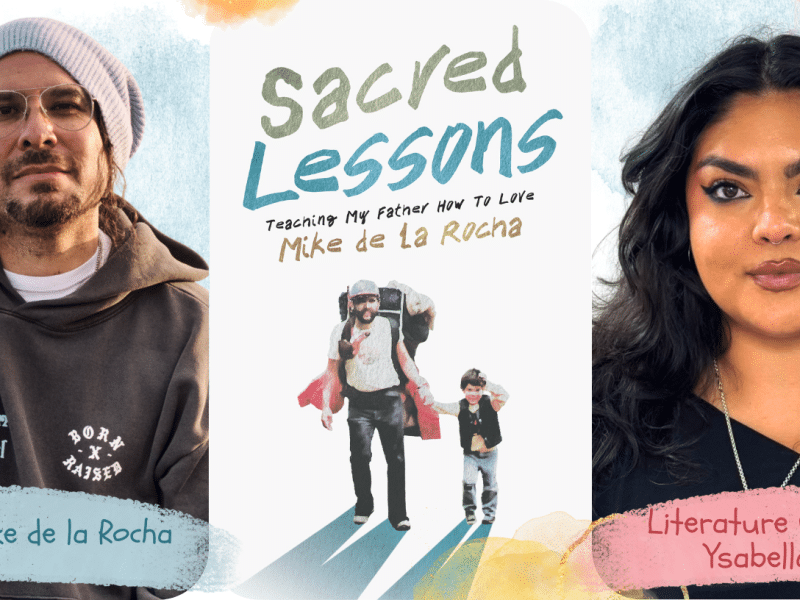Ivy Queen: La Reina del Reggaeton Trailblazing against Machismo
Ivy Queen’s legacy and musical influence have made a lasting impact on reggaeton and its toxic machista culture. We explore it here.

Hailing from Añasco, Puerto Rico, Martha Ivelisse Pesante had humble beginnings before rising to stardom. Despite not completing high school, she pursued her passion for music and enrolled in the New Jersey School of Performing Arts. However, her responsibilities as a caregiver for her family often took precedence over her studies.
It wasn’t until she saw the legendary Celia Cruz perform on TV in 1974 that she was inspired to write her own music and give birth to the iconic persona we know and love today, Ivy Queen. Since then, she has come to be known by many names: La Caballota, La Perra, La Diva, La Potra, and most importantly, La Reina del Reggaeton.
At 18 years old, the future queen of reggaeton made her way to San Juan, where she crossed paths with DJ Negro. Negro, one of the masterminds behind modern reggaeton, invited Ivy to join the Noise, a Puerto Rican group that went on to become one of the first reggaeton groups.
Disenchanted with the sexual and violent themes in their lyrics, Ivy Queen went solo in 1997, releasing her first album, “En Mi Imperio,” under Sony Discos.
Despite Sony dropping her following disappointing sales of her second album, “The Original Rude Girl,” Ivy Queen refused to give up on her dreams. In 2003, her persistence paid off when she released “Quiero Bailar,” a chart-topping hit from her third studio album, “Diva,” that would become an anthem.
The “Diva” album is now recognized as a crucial moment in the mainstream exposure of reggaeton, helping to popularize the genre in 2004, along with albums by Daddy Yankee and Tego Calderón, and was nominated for “Reggaeton Album of the Year” at the 2005 Billboard Latin Music Awards, cementing Ivy Queen’s status as a trailblazer in the music industry.
Although Ivy Queen is often recognized as the “first female reggaeton artist,” it’s important to acknowledge the badass women who paved the way for her in the late 1990s and early 2000s.
Among these early female trailblazers was Panamanian artist La Atrevida, aka Rude Girl, who gained fame in the early 1990s by popularizing Spanish-language reggae with her powerful vocals and socially conscious lyrics, addressing issues affecting the Afro-Caribbean community.
La atrevida, aka Rude Girl, popularized Spanish-language Reggae in the 1990s
www.youtube.com
Lisa M, a Puerto Rican rapper, and singer, gained popularity with her song “Tu Pum Pum” in 1998. And in 2001, Glory, also from Puerto Rico, released her debut album “Invasión.”
Back in the day, women were rarely given a voice in the reggaeton world, and when they were, it was often only as highly sexualized samples in male artists’ tracks. This was the case for Jenny La Sexy Voz, whose contribution to the unforgettable hooks of some of reggaeton’s greatest hits in the early 00s went largely unacknowledged.
Not giving a damn about the status quo, Ivy Queen’s 2003 smash hit “Yo Quiero Bailar” boldly addressed the topic of consent, and was subsequently adopted as a feminist anthem. The lyrics still resonate today, highlighting the importance of distinguishing between dancing and consenting to sexual activity. It’s even been chanted at women’s marches, cementing its place as a powerful cultural statement.
At a time when reggaeton was still nameless, dominated by men, and often characterized by misogyny and homophobia, her lyrics were groundbreaking. Ivy Queen dared to address themes such as social justice, women’s sexuality, LGBTQ+ rights, racial inequality, and the complexities of love. Her beats paved the way for the genre and challenged its traditional norms. In an interview with Okay Player, she stated:
“I was doing freestyle. I was doing hip-hop. I was doing reggae. Because, in those days, there wasn’t even such a thing as reggaeton. Then the music changed. Then comes reggaeton, and there I am waiting for my turn.”
Her song “Que Lloren” is a poignant take on romance, narrated from a woman’s perspective, that challenges the societal norm that men should not cry or express emotions. While in “Mi Barrio,” a politically charged song, Queen takes a critical stance on the issues plaguing her hometown of Añasco, Puerto Rico.
As a woman in the male-dominated world of reggaeton, Ivy Queen recognized that she needed to deliver a strong and unapologetic perspective from a female point of view to stand out. Yet, she refused to conform to patriarchal notions that dictate how women should sound, dress, and perform. Despite enduring relentless online bullying about her “masculine” voice and appearance, she unapologetically embraces herself as she is and has taken a stand against cyberbullying and discrimination aimed at the LGBTQ community.
Over the years, she has stayed true to herself, never compromising her values of self-determination and empowerment. Ivy celebrates the diversity of women, rejects the narrow confines of traditional gender roles, and is not afraid to make a statement whenever possible. At the “Premios Tu Música Urbana” event in 2019, she made a grand entrance accompanied by a group of drag queens who portrayed different phases of her musical journey and an all-women percussion ensemble. The message was clear: women are a force to be reckoned with, and Ivy was there to celebrate and showcase their power.
She is quick to call out harmful and disrespectful actions by fellow artists and enthusiastically uplifts her colleagues’ work whenever possible. In a Telemundo interview, she expressed happiness and excitement when asked about the current wave of women in urbano. Her response was:
Hace unos años no habríamos podido tener mujeres suficientemente exitosas en el género urbano como para contar con los dedos de una mano. Ahora tenemos muchas de donde escoger para un evento así.
In May 2022, Ivy Queen announced on social media that she was fighting an undisclosed illness and shared videos of herself receiving treatments at a hospital. However, she has since recovered and now appears as strong and fierce as ever, thanking God for her good health.
As of 2023, she has already received various awards for her musical legacy, continues to perform live shows throughout the year, and hosts an original podcast named “Loud,” which explores the origins and evolution of reggaeton.
So, the rest assured that the Queen of reggaeton isn’t going anywhere soon.
rest assured that the Queen of reggaeton isn’t going anywhere soon.




